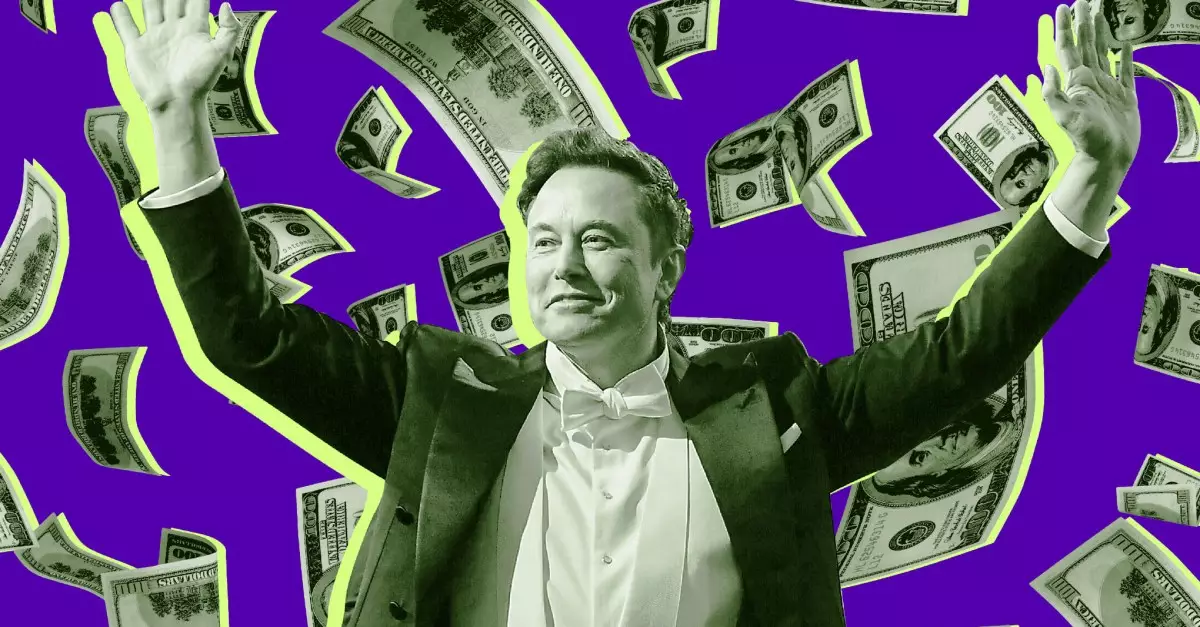In the hyper-competitive world of Silicon Valley, few rivalries are as pronounced as that between Elon Musk and OpenAI. This conflict has reached a new zenith with Musk’s recent announcement that he is spearheading a staggering $97.4 billion bid to acquire OpenAI’s nonprofit arm. Musk’s actions highlight not only his ambition but also the growing concerns surrounding artificial intelligence’s trajectory and governance. The stakes are high, as both innovation and ethical considerations hang in the balance.
Musk’s bid comes amidst a flurry of activity at OpenAI, where CEO Sam Altman is navigating unprecedented changes. This influential organization is transitioning to a for-profit model, a move that brings with it a multitude of complications. Altman is also busy securing investments to elevate OpenAI’s valuation to $340 billion while embarking on ambitious AI infrastructure projects worth $500 billion. The timing of Musk’s proposal places significant pressure on Altman and OpenAI’s board, who must reconsider their strategies while dealing with potential disruption from Musk’s coalition.
The coalition backing Musk’s bid is formidable, including his own AI endeavor, xAI, along with notable investors like Valor Equity Partners and Hollywood executive Ari Emanuel. Additionally, the involvement of Joe Lonsdale through his venture firm 8VC further illustrates the seriousness of Musk’s intentions. This complex web of interests hints at a power struggle that transcends mere stakes in a company; it embodies a clash of visions for the future of AI. Musk believes OpenAI has strayed from its foundational mission to prioritize safety and transparency in AI development, and he is betting heavily on a return to these principles.
At the heart of Musk’s legal and business maneuvers lies a quest for ethical governance in AI. His statement underscores the urgency he feels in reshaping OpenAI back into a “safety-focused force for good.” This ideology, however, raises questions about ownership, control, and the responsibilities that come with advancing AI technologies. Musk’s insistence on open-sourcing AI development reflects a broader concern shared by many technologists about the potential monopolization of AI capabilities by a select few entities.
As Elon Musk’s bid unfolds, the implications for the AI landscape are profound. Altman must juggle the potential ramifications of Musk’s offer with ongoing negotiations with partners like Microsoft. The competition for equity and influence within the AI realm could tilt the balance of power, potentially redefining the sector’s dynamics for years to come.
Musk’s audacious pursuit of OpenAI signifies a substantial shift in the ongoing narrative of artificial intelligence. The rivalry is not merely about acquisition; it represents divergent philosophies for the future of AI development. As this high-stakes drama continues to unfold, the tech world watches closely, aware that the outcome could shape the ethical framework guiding AI technology for generations.


Leave a Reply